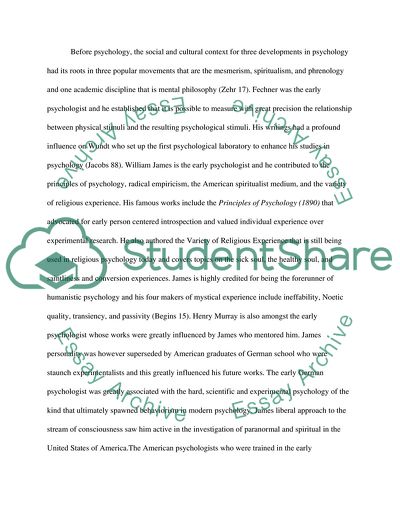Cite this document
(“The History Of Psychology Essay Example | Topics and Well Written Essays - 2000 words - 1”, n.d.)
Retrieved from https://studentshare.org/psychology/1624547-the-history-of-psychology
Retrieved from https://studentshare.org/psychology/1624547-the-history-of-psychology
(The History Of Psychology Essay Example | Topics and Well Written Essays - 2000 Words - 1)
https://studentshare.org/psychology/1624547-the-history-of-psychology.
https://studentshare.org/psychology/1624547-the-history-of-psychology.
“The History Of Psychology Essay Example | Topics and Well Written Essays - 2000 Words - 1”, n.d. https://studentshare.org/psychology/1624547-the-history-of-psychology.


